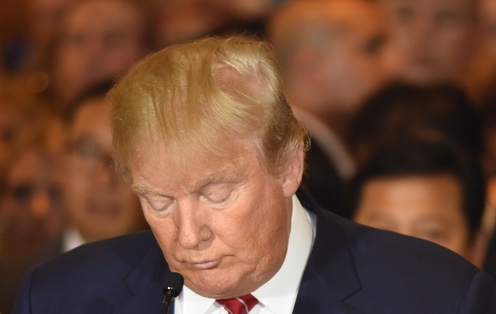Democracy is hard

One of the casualties of the slavering jaws of 2020 was the great Swedish actor of stage and film Max Von Sydow. He pulls off a minor miracle in the role of Frederick in Woody Allen’s “Hannah and her Sisters,” when he observes of the common lament of the horrors of the Nazis, the “puzzled intellectuals declaring their mystification of the systematic murder of millions. The reason why they could never answer the question, ‘How could it possibly happen?,’” Frederick declares, “is that it’s the wrong question. Given what people are the question is, ‘Why doesn’t it happen more often?’”
Even so, it wasn’t a rhetorical question when I was growing up. Many sociologists and political philosophers, scratching their collective heads over the Nazi question, came to believe that there was something unique about that moment in history and the psychology of the German people, that it was a sui generis perfect storm of wicked social influences that could cause a society that brought us Beethoven, Goethe and Einstein to turn so uncharacteristically savage. If not unique it was at least unusual. And given the lesson of history that the Nazis taught us (or should have taught us), it was commonly thought that it couldn’t happen again. Or that it certainly couldn’t happen in America.
But in a way, Frederick was right. It did happen again. Donald Trump is no Hitler, of course, but he is part of the same sickness that brought us Hitler. He is part of the same disease that warms the self-righteous innards of certain people at the thought of iron-fisted retribution for anyone who fails to see the world exactly the way they do. That is why they speak so gleefully of guns and death penalties and long prison sentences. The frustrations of little lives of quiet desperation sometimes find catharsis writ large in the politics of hate and revenge, and that savage catharsis too often goes too far.
People like Donald Trump exploit the human need to blame. Hitler blamed the Jews, the communists, the “social degenerates” for common social woes, and he taught millions of Germans to blame them too. After all, it’s easier and more gratifying to blame others for your problems than it is to blame yourself.
That’s why so much of Trump’s rhetoric is the rhetoric of blame. We’re in the mess we’re in with coronavirus because of China. Many of our economic problems are because of immigration. Anything wrong today is because of the mess Trump inherited from Barack Obama. Trump lost the rigged election because of the cheating Democrats. And so on.
It’s easier to find someone to invent blame and manufacture hate than it is to find ways to fix problems that we all, in the final analysis, are to blame for. It’s an ego-saving excuse for failure, and nothing failed quite so spectacularly as the one-term mediocrity known as Donald Trump.
Trump was a lazy president who hated to do his job. Because he hated the job he didn’t do it. He preferred golf, tweeting, watching television and eating junk food to security briefings and reading memos and consulting with experts. So that’s what he did.
The president of the United States has no boss to answer to. He can pretty much do what he wants. Ordinarily the people who occupy that office have a remarkable work ethic. But there’s no remedy, Constitutional or otherwise, for presidents who are shiftless.
And so instead Trump blames. And he leads millions of Americans, most of whom are either stupid or corrupt, in a chorus of blame. And that blame becomes anger which sometimes manifests itself in violence. The violence can even be passive. Failure to wear masks, failure to social distance, failure to wash hands, and before you know it more than 300,000 Americans are dead. Indolence and ignorance can be every inch as genocidal as a Nazi gas chamber.
All of which is to say, Democracy is hard and Fascism is easy. It should be no surprise to us that the line of least resistance has been followed with such angry insistence by the worst among us. Trump appeals to the day-drunk at the end of the bar who knows all the solutions to all the world’s problems, and the people who think he just may be on to something. But it takes guts and effort to unite disparate people in a common cause. Trump failed because he’s a lazy coward.
Donald Trump is nothing more than a lazy man making excuses for his bad performance. Trump lost because a majority of Americans were tired of his excuses and tired of blame. Nothing is achieved by anyone who spends his days blaming others for the mess they are in. Donald Trump is just a bad loser, and a bad loser is, in the final analysis, still just a loser.
We must remain hyper-vigilant against future Trumps. The question of how a Trump could possibly happen is no longer rhetorical. Another Trump will come along if we let him, or her. We must stay alert to that danger, always. Because Democracy is hard. And, as ever, ladies and gentlemen, brothers and sisters, comrades and friends, stay safe.

Robert Harrington is an American expat living in Britain. He is a portrait painter.
